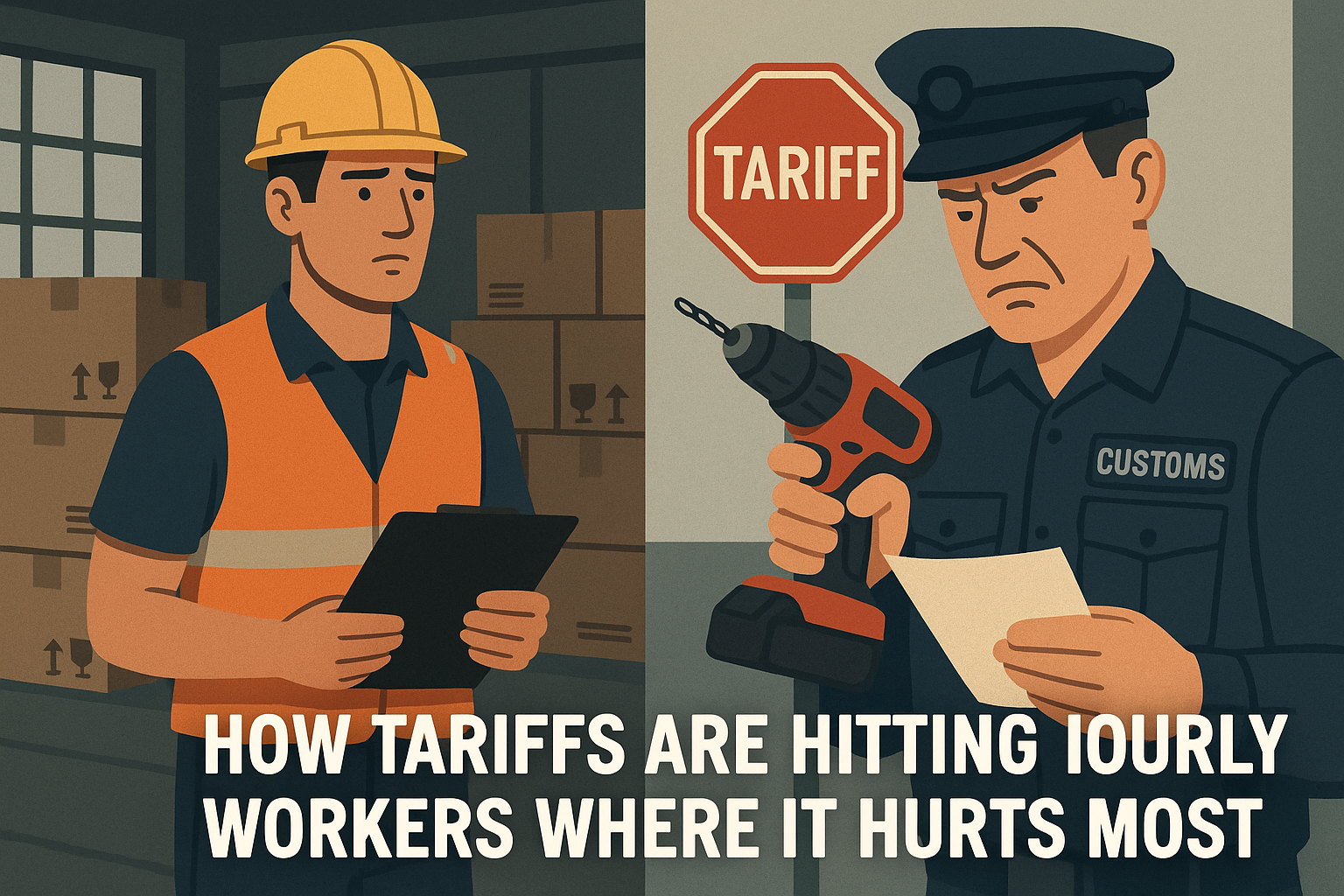Clocking In? Tariffs Are Clocking In, Too.
For hourly workers—whether you’re in retail, warehouses, construction, or customer service—the job is already demanding enough. But there’s another invisible factor making it harder to earn and save: tariffs.
Tariffs are taxes placed on imported goods, meant to protect domestic industries. But in reality, they often lead to higher prices, tighter budgets, and fewer hours on the clock—especially for workers paid by the hour.
If you earn by the shift, here's how international trade fights can directly impact your paycheck.

The Real-World Impact of Tariffs on Hourly Workers
1. Fewer Hours or Layoffs in Affected Industries
When tariffs raise the cost of doing business, many companies try to cut expenses. That can mean fewer hours offered to part-time or hourly employees—or even job cuts.
- Industries at risk: Retail, warehousing, transportation, auto repair, and food service
- Real example: After tariffs on steel and aluminum, some U.S. manufacturing plants reduced shifts or paused hiring.
2. Rising Prices with No Raise in Sight
Tariffs often lead to more expensive goods—from food and clothing to construction supplies and tools. When living costs go up but wages don’t follow, hourly workers feel it the hardest.
- Gas, groceries, and gear can all cost more when imported goods are taxed.
- Impact: Your paycheck doesn’t stretch as far, even if you work the same hours.
3. Slower Job Growth in Entry-Level Roles
Small businesses often rely on imported goods or equipment. When those get more expensive, they may slow down hiring. That means fewer entry-level roles for new workers or those trying to re-enter the workforce.
Tariffs on the Floor: Hourly Jobs That Feel It Fast
- Retail associates: Fewer hours if stores sell fewer tariff-affected goods
- Warehouse workers: Reduced shifts if companies cut inventory due to import costs
- Construction workers: Slower projects when materials like lumber or steel spike in price
- Auto mechanics: Higher parts costs can lead to slower business and tighter payrolls
What Hourly Workers Can Do
- Stay Updated
- Follow local news or job board blogs to understand how trade policy is affecting your region or industry.
- Cross-Train or Upskill
- Learn new tasks on the job to stay valuable when employers start trimming roles.
- Look for Resilient Industries
- Jobs in healthcare, local services, or infrastructure may be less exposed to tariffs.
- Track Local Employers’ Health
- Notice if your employer deals with imported products or parts—ask smart questions about how they're handling cost increases.
Final Thought: You Don’t Need to Be in D.C. to Feel a Trade War
Tariffs might sound like something only politicians and economists worry about—but they can affect how many hours you work, how far your paycheck goes, and what jobs are even available. If you're paid by the hour, understanding the impact of global trade could be the edge you need to protect your income.
Bonus Resources for Hourly Workers:
- U.S. Bureau of Labor Statistics – Job Outlooks
- Federal Trade Commission – Economic Policy and Consumer Rights
- Job Training and Upskilling Grants – CareerOneStop
Searching jobs on Hourly Jobs
The team at Hourly Jobs Near Me is constantly working on curating the best, most reliable and current job content on around the internet. Which means sometimes you may be redirected to another job board (Careerbuilder or ZipRecruiter for example) and other times you may be redirected to apply directly on the company's site from Hourly Jobs. This approach allows us to bring the most content to you in one place, but if you see something amiss or are looking for additional content we don't have yet, we want to know. You can contact us any time here.